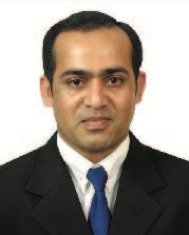Paper Submission
A. SUBMISSION DEADLINE:
All paper to ITSS-IoE 2025 must be submitted through the online conference management system EasyChair within the announced deadline and in pdf formats. The Initial Paper Submission deadline is August 15, 2025
B. PREPARATION OF MANUSCRIPT:
Abstract: The maximum of 200-word abstract should be a brief summary of the work, which will be included in the Conference Proceedings if the paper is accepted.
Summary: The Maximum 6-page two-column IEEE style Summary includes all the text, abstract, title, authors, equations, tables, photographs, drawings, figures, and references. In exceptional circumstances, authors must contact the publication chair Assoc. Prof. Dr. Shah Murtaza Rashid Al Masud, Head, Department of Computer Science and Engineering, University of Asia Pacific Bangladesh and an extra charge will be applied for each page.
Double-Blind Paper: The authors should not include their names, affiliations, postal addresses, and email addresses in the initial manuscript.
Manuscript Template: Submissions must follow standard IEEE conference templates. The manuscript template is also available at the following links: MS Word (A4), MS Word (US Letter), Latex
C. PLAGIARISM & MULTIPLE SUBMISSION POLICY
Plagiarism: All conference papers submitted to ITSS-IoE2023 for publication must record original work which has not been published previously. Any alleged cases of plagiarism will be dealt with according to the ITSS-IoE2021 and IEEE Policy in relation to Plagiarism, Infringement of Copyright and Infringement of Moral Rights and Submission to Multiple Publications outlets.
The IEEE policy on Plagiarism is available at IEEE Policy on Plagiarism
Multiple submissions: ITSS-IoE2023 and IEEE do not permit manuscripts included in its conference proceedings to be simultaneously under review for another conference, journal, or other forms of publication. Once a case of multiple submissions has been established, the paper(s) in question will be immediately declined for publication by the ITSS-IoE2023 and IEEE followed by appropriate disciplinary action.
The IEEE policy on Multiple submissions is available at IEEE Policy on Multiple Submission
D. COPYRIGHT
ITSS-IoE2023 is technically co-sponsored by IEEE Yemen section. Accepted and presented papers will be published on IEEE Xplore® (IEEE Digital Library) and IEEE will own the copyright to the conference publication. IEEE copyright form will be filled out for each paper separately (One copyright form is required for one paper).
Download Copyright form: IEEE Copyright form
